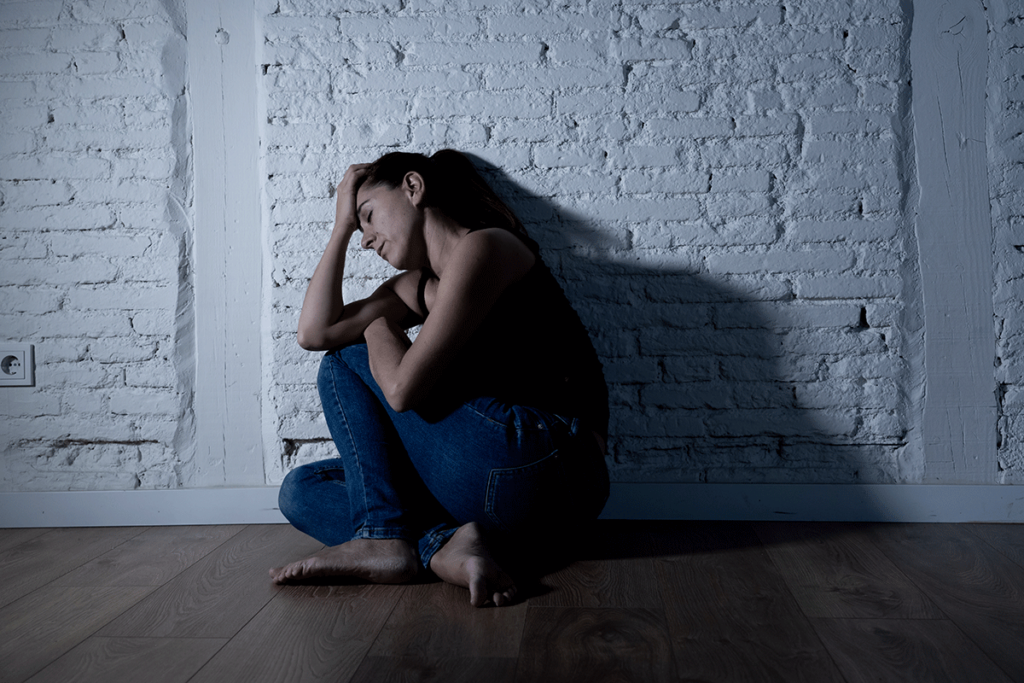Benzodiazepines, often referred to as benzos, are a class of prescription drugs used to treat a variety of conditions, such as anxiety, insomnia, panic disorders, and seizures. These drugs work by slowing down the central nervous system, producing a calming effect, which can be helpful for people dealing with high stress levels or anxiety disorders. However, benzodiazepines can lead to physical and psychological dependence, especially when used beyond the prescribed period or in higher than prescribed dosages. Learning the symptoms of benzo addiction can help people see when a problem is brewing.
If you or a loved one is struggling with benzo abuse, Serenity Grove’s benzo addiction treatment program can help. At Serenity Grove, we offer comprehensive addiction treatment programs that we customize according to each client’s medical history and recovery goals. To learn more about how enrolling in our benzo rehab can help, call us at 844.904.3485.
Understanding Benzo Addiction
Benzodiazepine addiction typically develops over time as a result of prolonged use or misuse of the drug. It can occur even in individuals who initially began taking the medication under a doctor’s prescription and follow the prescribed dosage. Benzo addiction carries with it several risks. There’s the risk of overdose, which can be life-threatening, especially when benzodiazepines are combined with other substances like alcohol or opioids, which is unfortunately quite common.
Long-term benzo abuse is also risky for a person’s health. Some health issues that may arise from benzo use can include memory, mental health, and physical health problems such as gastrointestinal issues, chronic fatigue, and a weakened immune system.
What Are the Signs of Benzo Addiction?
Addiction to benzos is characterized by a variety of signs and symptoms that encompass physical, psychological, and behavioral aspects. It’s important to note that these signs may not be apparent immediately and may vary based on individual factors.
Physical Signs of Benzo Addiction
One of the earliest signs of benzodiazepine addiction is an increased tolerance to the drug. This means that the individual requires higher doses of the drug to achieve the desired calming effect. Eventually, the person may also become physically dependent on the drug, experiencing uncomfortable or even dangerous withdrawal symptoms if they try to stop or reduce usage. These symptoms can include:
- Restlessness
- Insomnia
- Increased anxiety
- Seizures
Other physical signs of benzodiazepine addiction may include drowsiness or sedation, physical coordination problems such as unsteady movement or slurred speech, and even memory problems, particularly with short-term memory.
Psychological and Behavioral Signs of Benzo Abuse
The psychological signs of benzodiazepine addiction can often mirror the symptoms the drug was initially prescribed to treat, with the individual experiencing increased anxiety or even panic attacks. Mood swings and emotional instability are also common.
In terms of behavioral signs, individuals struggling with benzodiazepine addiction may start visiting multiple doctors to obtain more prescriptions. They may also resort to buying the drugs illegally or using other people’s medications. Some individuals may start neglecting personal and professional responsibilities, and they may withdraw socially, becoming isolated from friends, family, and activities they once enjoyed.
How Is Benzo Addiction Treated?
Treating benzo addiction requires a comprehensive approach that is tailored to the client’s specific needs.
Medical Detoxification
Due to the risk of severe withdrawal symptoms, it’s crucial that people struggling with benzodiazepine addiction undergo detoxification under medical supervision. A slow, controlled tapering of the drug is typically performed to safely wean the individual off the medication and manage withdrawal symptoms.
Therapy
Cognitive Behavioral Therapy (CBT) is often used in treating benzodiazepine addiction. CBT helps individuals understand the thoughts and behaviors that led to their addiction and teaches them new coping mechanisms and skills for handling stress and anxiety.
Medication-Assisted Treatment (MAT)
In some cases, other medications may be used to manage withdrawal symptoms or reduce cravings for benzodiazepines.
Support Groups
Support groups such as Narcotics Anonymous or Benzodiazepine Anonymous can provide peer support and encouragement throughout recovery.
Continuing Care
Once initial treatment is complete, ongoing therapy and support are essential for maintaining long-term recovery. This can involve regular therapy sessions, support group meetings, and lifestyle modifications.
Benzodiazepine addiction is a serious and potentially life-threatening condition. Recognizing the signs of addiction and seeking professional help can lead to recovery and the ability to live a healthy, productive life free from substance use.
Break Free from Benzo Addiction at Serenity Grove Recovery
Individuals struggling with the symptoms of benzo addiction are often reluctant to see professional help. However, it’s always good to remember that addiction is not a personal or moral failing. It is a disease that can successfully be treated. Entering a benzo rehab program can provide individuals with the opportunity to make positive changes for their health and happiness. At Serenity Grove, we are committed to helping people recover from addiction and rebuild their lives. It is never too late for a fresh start. Call us at 844.904.3485 or fill out our online contact form and start your recovery.


